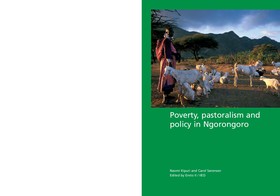Poverty, pastoralism and policy in Ngorongoro: Lessons learned from the Ereto I Ngorongoro Pastoralist Project with implications for pastoral development and the policy debate

Although Tanzania relies on pastoralists and agro-pastoralists for most of its meat and milk, recent years have seen pastoralist production systems operating under growing pressure and pastoralist communities becoming increasingly impoverished. A Participatory Poverty Assessment commissioned by Ereto in 2003 identified four key factors that reduce pastoralists’ livelihood opportunities and make them vulnerable to poverty: livestock diseases; drought; fluctuating market prices; and unfavourable policies that further marginalise pastoralists by reducing their capacity to cope with stress and increasing their loss of land. The positive results achieved by Ereto I show that it is possible to promote sustainable livelihoods and help tackle poverty among pastoralists by using participatory approaches to work with them on their own development issues and providing appropriate support for their livelihood strategies. This key lesson has far-reaching implications for policy dialogue in the present context of pastoralism and policy formulation in Tanzania. This paper provides pointers that will help address the fourth constraint to pastoralist production.
Cite this publication
Available at https://www.iied.org/12548iied